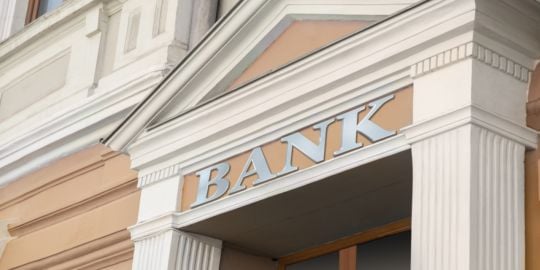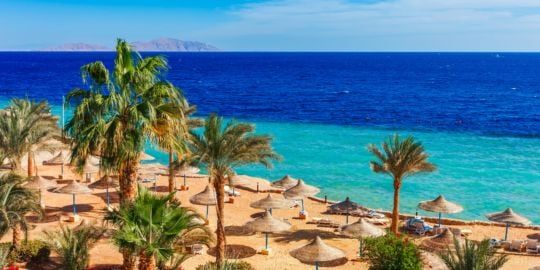I have from time to time searched for information on the quality of potable water within Egypt as it often relates to other areas of daily use in manufacturing process's the water issues in some cases has effected or caused a related quality problem which was discovered during a manufacturing process consultation I was performing for a local firm Via Imc.Egypt.org As a locally based foreign manufacturing expert for another industry sector.
As part of my consulting efforts i routinely research and make equipment recommendations based on the current status of the manufacturing operations issues and related problems.Recently we recommended a commercial size ro unit for use in a facility that produces paints and other related products used mostly in construction and the building finishing sector.
This exercise put me in direct contact with various manufacturers of these types of devices and included information for home use devices.These devices are made and available globally and meet many of the required ISO certifications for sales in areas which take consumer protection and health seriously.The governing body for standards and application of quality within Egypt is the Egyptian organization for standards.
The areas covered in this linked report feeds the water supply where i live currently.
I have always used the local water boiled for coffee,tea and any other type of drink which requires boiling then refrigeration for storage. We also in the past used some tap water for cooking.
We have always used bottled water for all our daily drinking habits.
If anybody has any related current reports or information on the water quality within Egypt it would be appreciated if you add it to this thread with a link back to the source.
I would also like to begin collecting information on other types of units that have been purchased locally by others either Egyptian or other nationalities. It would be great if i could get a year for the purchase, type and make of unit with a cost for the device and for any type of extended or home service/maintenance plan with its related cost.
This information can either be added to this thread or messaged to me directly on this site or emailed.
The report above also suggest using a point of use filtration system and then still boiling the water prior to use.
We normally use a large counter top type electric water boiler which is kept full of water that has been boiled at least one time prior to use in our daily cooking.
We recently installed a under counter model reverses osmosis filter system with five stages along with a storage tank.The unit automatically cleans the filters on a regular cycle which is pre programed into the small system and discharges the backwashed solution into the buildings drain system.The unit produces on average seventy five gallons a day of cleaned water or 12 liters per hour on a continuous basis. I'm happy to say the water taste quite like aquafina which is one of the popular local brands.
The installation was pretty quick and clean it took the person under and hour to install the unit and separate the trash from information and items we should retain for future use.I was happy to see they cleaned up the dirt and debris made during the installation process.
Based on our family of four and our related past purchasing level for bottled water we will recover the cost of the system in under a one year period.
This is a decent list of the contaminates normally removed using a reverse osmosis filter system.
Reverse osmosis (RO) units remove substantial amounts of most inorganic chemicals (such as salts, metals, minerals) most microorganisms including cryptosporidium and giardia, and most (but not all) inorganic contaminants.
Reverse osmosis successfully treats water with dissolved minerals and metals such as aluminum, arsenic, barium, cadmium, chloride, chromium, copper, fluoride, magnesium, iron, lead, manganese, mercury, nitrate, selenium, silver, sulfate, and zinc. RO is also effective with asbestos, many taste, color and odor-producing chemicals, particulates, total dissolved solids, turbidity, and radium. When using appropriate activated carbon pre-filtering (commonly included with most RO systems), additional treatment can also be provided for such "volatile" contaminants (VOCs) as benzene, MTBE, trichloroethylene, trihalomethanes, and radon. Essentially, reverse osmosis is capable of rejecting bacteria, salts, sugars, proteins, particles, dyes, heavy metals, chlorine and related by-products, and other contaminants that have a molecular weight of greater than 150-250 daltons.
This is what the Center for Disease Control in America states regarding the effectiveness of reverse osmosis filter systems.
Reverse Osmosis Systems use a process that reverses the flow of water in a natural process of osmosis so that water passes from a more concentrated solution to a more dilute solution through a semi-permeable membrane. Pre- and post-filters are often incorporated along with the reverse osmosis membrane itself.
A reverse osmosis filter has a pore size of approximately 0.0001 micron.
Reverse Osmosis Systems have a very high effectiveness in removing protozoa (for example, Cryptosporidium, Giardia);
Reverse Osmosis Systems have a very high effectiveness in removing bacteria (for example, Campylobacter, Salmonella, Shigella, E. coli);
Reverse Osmosis Systems have a very high effectiveness in removing viruses (for example, Enteric, Hepatitis A, Norovirus, Rotavirus);
Reverse Osmosis Systems will remove common chemical contaminants (metal ions, aqueous salts), including sodium, chloride, copper, chromium, and lead; may reduce arsenic, fluoride, radium, sulfate, calcium, magnesium, potassium, nitrate, and phosphorous.
It took some effort to locate and contact the company we purchased our filter system from.Like many of the company's here that have web sites, the email links were found to be none functioning for two of the three firms we contacted and the third firms worked but they were none responsive to our initial attempt at contacting them via email in English.
I find this habit a bit bothersome,why build a web site for advertisement,sales,brand or company promotion with a link for use while contacting the firm. if you fail to respond to enquirers.
My luck with using the land lines was just a little better, i did manage to contact two of the the three firms and made a little head way speaking in English.In the end we used the mobile phone numbers and contacted them again using Arabic all three were quick to answer our questions.
The unit we purchased as a package deal, the device, along with one year of home maintenance service and one complete set of the required replacement cartridges needed during the first year of use.We were giving an invoice that outlined the cost for all three parts of the package.Its worth mentioning that some of the filters have either a one or two year life span.while the others are rated for three months or six months depending on the quality of the feed water.The company sends a person on a quarterly basis to check the flow rate and condition of the first two particulate filter's for dirt,sands and other solids,which I'm sure should be changed on a quarterly basis as a best of practice issue.And the cost for this type or rolled cotton thread type particulate filter, which is used in the first stage of cleaning is very minimal around the world and here in Egypt.
My family of four will use daily about six liter's a day during eight of the cooler months.The other four hotter months we use on average twelve litters a day this works out to four hundred and eighty of the six liter bottles a year.If you do the math by multiplying the four Le cost of a six liter bottle based on the price of Aqua which is one of the major local brands by the amount of bottles giving above, it works out to 1920Le which is greater then the price of the device.
Currently within Egypt you should be able to obtain a good under the counter five stage unit within the price range of 1250.00 Le 1,500.00 Le maximum as a package deal that should include.
Your on going cost in subsequent years would be equal to only the cost for the service you selected for the needed maintenance.
1. Cost of device
2. Delivery and installation in your home.
3. Quarterly service with all filters for a year.
4. Option for a dis-counted long term service contract.
5. Complete proper cleanup of site.
6. Warranty documents,service record and instruction manuals.
I'm very happy to report its my perception that after a year long use of our R/O System.That my family has been generally less effected by routine illness over the last year.
We've had absolutely no trouble with the unit we purchased locally.I have used two clean dry short drinking glasses a couple times during the last year to do a simple check of the units cleaning process.I fill one with un-filtered tap water the other with water taken from the R/O unit then smell both and look at the clarity and for anything floating in the glasses. I then cover both of the drinking glasses and let them stand a couple of hours to see if anything settles to the bottom.
I have always been pleased by the results of this very simple comparative test.I'm now positive that i made a good decision and investment in my families health.
Carrefor sales and assortment of cheap filters for in-line and counter top use. None of which can filter,clean and store water in a sufficient amount that we use as a family on an hourly or daily basis for our cooking and drinking needs.
One should be careful when and if you chose to buy a compact counter top model,that has a single combined multiple stage filter. if one part of the combined filter fails you most likely will need to replace the filter. one model we looked at has a replacement filter cost of eighty five Egyptian pounds when purchased from the wholesale area downtown.The normal retail price for the same replacement filter cartridge is roughly one hundred and twenty pounds at retail.
One really should ask to see some of the available replacement parts for the device you plan to purchase or at least be shown a price breakdown for the unit and be told where you can obtain service and other important parts components if needed.
As an ex-pat with children that has rented quite a few flats and or apartments here over the years.I would today ask, request directly from the land lord as a minimum that they install at least a five stage ro filter system with automatic shut down and water storage capacity of at least one or two gallons per hour for daily use.I would also try to offset this cost in the rental contract,if the landlord refused your request as its most likely equipment you will leave when you depart.
The unit we purchased was a bit on the expensive side,but like all things one purchases its buyer beware when it comes to quality and cost of product.one should always push for a reduced fee, which we were giving when they saw our cash in hand during our visit to their showroom.
I will list/link to some of the recent studies which are available on-line and relate directly to the quality of available waters within Egypt.
Please note in one of the reports below its mentions the proper storage conditions for bottled water coupled to the expiry date.This report also indicates, that product quality and or shelf life can be effectively reduced when reaching or exceeding the the upper threshold requirements.
Quality of Bottled Water Brands in Egypt
Chemical Quality of Tap Water versus Bottled Water









